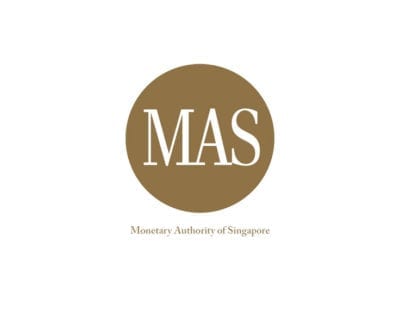The process of registering and incorporating a company in Singapore involves several steps. One of the most important of these concerns the requirement of paid-up capital. This guide explains what paid-up capital is, how much paid-up capital is required to start a business, and how paid-up capital relates to working capital.

Paid Up Capital: An ACRA-mandated Requirement
Any company in Singapore has to be registered with the Accounting and Regulatory Authority (ACRA) in order to operate. Entrepreneurs can choose between various company structures and decide which type of company they wish to open. This is when paid-up capital comes into play since not all types of companies have paid-up capital requirements. In fact, only Subsidiary and Private Limited companies are required to define their capital structure at the time of company registration.
Understanding the shareholder structure
To understand paid-up capital, one must first understand the shareholder structure.
- A shareholder is a person or entity who owns at least one share of a company’s stock or equity.
- In Singapore, it is mandatory for every private limited company to have at least one, and a maximum of 50 shareholders.
- It is also possible for foreign individuals and companies to be shareholders for a Singaporean company.
- Additional shares can be issued with the approval of the shareholders at any time.
Paid-up capital, issued share capital, and authorised capital
Paid-up capital refers to the amount of money that has been received by the company through the issue of shares to various shareholders. This amount is used in the running of the business in its initial phase. Shares that are issued for paid-up capital can be in the form of ordinary, preference, or any other class of shares.
On the other hand, issued share capital is the actual amount of money (or other assets) which are contributed to the company by the shareholders. Unlike paid-up capital, these shares are not required to be fully paid-up at the time of incorporation.
For example:
If the issued share capital is higher than the paid-up share capital, it means that the shareholders of the company have not yet fully paid for the shares. In such a scenario, the company can request the shareholders to complete the payment for the shares that they own whenever it requires operating funds.
Authorised capital is a concept that has now been abolished, but earlier referred to the maximum amount of share capital (including paid-up capital) that a company was authorised to allot. Earlier, this amount used to be fixed when the company was first incorporated and mentioned in the company’s constitution.
The use of paid-up capital as working capital
Paid-up capital can be used for a number of initial company expenses, including buying equipment on behalf of the company or even paying employee salaries. It can also be used as working capital to keep the company operating in its first few months. The amount can be kept in the corporate account for as much time as required and can be used when the company feels the need to do so.
In case the company becomes insolvent, the paid-up capital along with the remaining company assets will be used to repay creditors.
Minimum requirements for paid-up capital
- The minimum paid-up capital is $1 only. This can be increased any time after the company has commenced operations.
- International business owners applying for a relocation visa through Entrepreneur Pass (EntrePass), should aim to have a minimum paid-up capital of $50,000 in order to increase chances of EP approval.
- Certain types of regulated businesses (e.g. travel agencies, recruitment firms, financial services, etc.), have different requirements for minimum paid-up capital requirements as dictated by the relevant authorities.
It is wiser for a company to have a higher paid-up capital structure since this is likely to help secure better fundraising terms, lower interest rates for debt, access to the Singapore Business Federation, and other benefits.
How to increase paid-up capital

A company will need to issue new shares to increase paid-up capital after registration. This can be done either by accepting new shareholders or getting existing shareholders to purchase more shares.
The process for issuing new shares differs from company to company and should be considered closely since a breach of these rules can lead to civil and criminal liabilities. Factors like notice period, directors’ approval, shareholder approval, and others should be taken into notice when planning to expand the paid-up capital.
The process for doing increasing paid-up capital is as follows:
- Incorporate the company with minimum required share capital.
- Open corporate bank account.
- Inject funds into corporate bank account.
- Prepare required documentation, and give a notice for increase of share capital.
- File documents for share capital increase with the relevant authorities.
Paid-up capital for Banks

The Monetary Association of Singapore (MAS) is the regulatory body for banks and financial services in Singapore. Every bank needs a license in order to operate. In addition to this, the Banking Act in Singapore requires all registered banks in the country to have a minimum paid-up capital of $1.5 billion and be required to show documents as and when the MAS demands them to ensure that they are sufficiently funded and able to operate.
Some must-knows about Paid-up capital in Singapore
Here are some things about paid-up share capital which company proprietors might find useful:
- For a registered company in Singapore, it is mandatory to have a corporate bank account through which all company finances are handled. Paid-up capital is settled in cash and deposited to the company’s corporate bank account.
- Paid-up capital can be given in any internationally accepted legal currency. However, the Singaporean Dollar is preferred.
- If paid-up capital remains unsettled by a shareholder, then his voting privileges are taken away until he fully pays for the shares he owes.
- If the paid-up capital is misused then the company has the right to sue the person who has done so.
- Paid-up capital can be increased by the company even after incorporation.






Leave A Comment